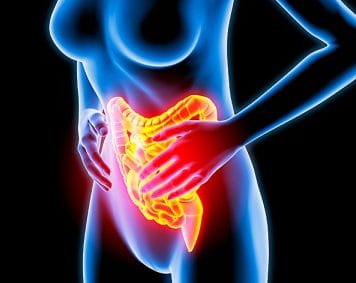October 19, 2021 – 07:31
Eindhoven, October 18, 2021 – Patients with chronic intestinal infections are not at greater risk of a more serious course of corona. “For patients with Crohn’s disease or ulcerative colitis, this is a very important and reassuring message,” says gastrointestinal and liver doctor Dr Lennard Gilissen. This conclusion was recently published in the international medical journal Clinical and Experimental Medicine. It is the only article in the world to date with long-term results on this patient group.
“In the group of 1453 Crohn’s and ulcerative colitis patients at Catharina Hospital, we investigated how often they had a severe course of COVID-19 during the first year of the corona outbreak in the Netherlands,” explains Gilissen, “it is because their chronic illness to vulnerable patients, 40 percent of whom are taking immunosuppressive drugs. Patients with these drugs have a reduced resistance to various infections. Little is known about the course of a corona infection in this category of patients. Fortunately, the risk of a more serious course resulting in hospitalization or death is not too bad.”
General population
Gilissen continues: “In our patient group, we mapped the disease type, age and medication use in detail using anonymous data that we normally study to improve our quality of care. In addition, we looked at admission and death from COVID-19 in and outside the hospital in various ways. The findings of the entire group of Crohn’s and colitis patients have been compared with those of the general population in the Southeast Brabant region and nationwide.”
explanations
The risk of hospitalization (7 patients, 0.48 percent) and death (2 patients, 0.14 percent) from COVID-19 did not differ significantly from the general population. “There are several theoretical explanations for this. The most important seems to be the inhibitory effect of immunosuppressive drugs on the exaggerated immune response seen in patients with severe COVID-19. This outcome may also be important for patients with other immune-related disorders on the same medication. Think of rheumatism or psoriasis patients. But this will have to be further investigated,” said Gilissen.
No surprise
The results of the study are no surprise to Gilissen. “During the first outbreak wave in 2020, as a doctor in the corona department, I saw none of my patients with corona being admitted. I did hear that patients had COVID, but with only mild symptoms. I am pleased that we have now been able to demonstrate this with a thorough investigation. That does not alter the fact that I advise all my patients to get vaccinated. I believe that we should protect ourselves optimally, if we have the opportunity.” The full article can be read here.
Source: Catharina Hospital Eindhoven

:quality(80)/cdn-kiosk-api.telegraaf.nl/70b1ea64-30b6-11ec-8841-02c309bc01c1.jpg)
